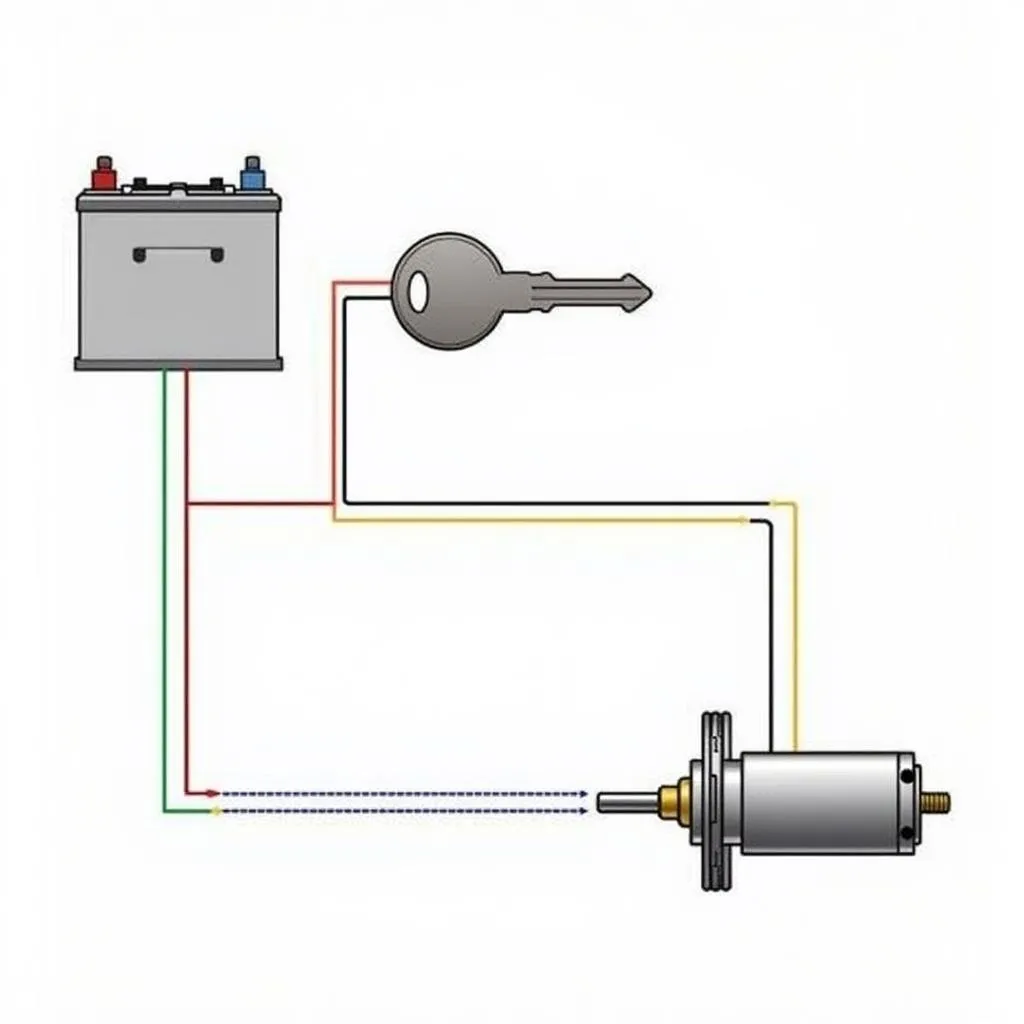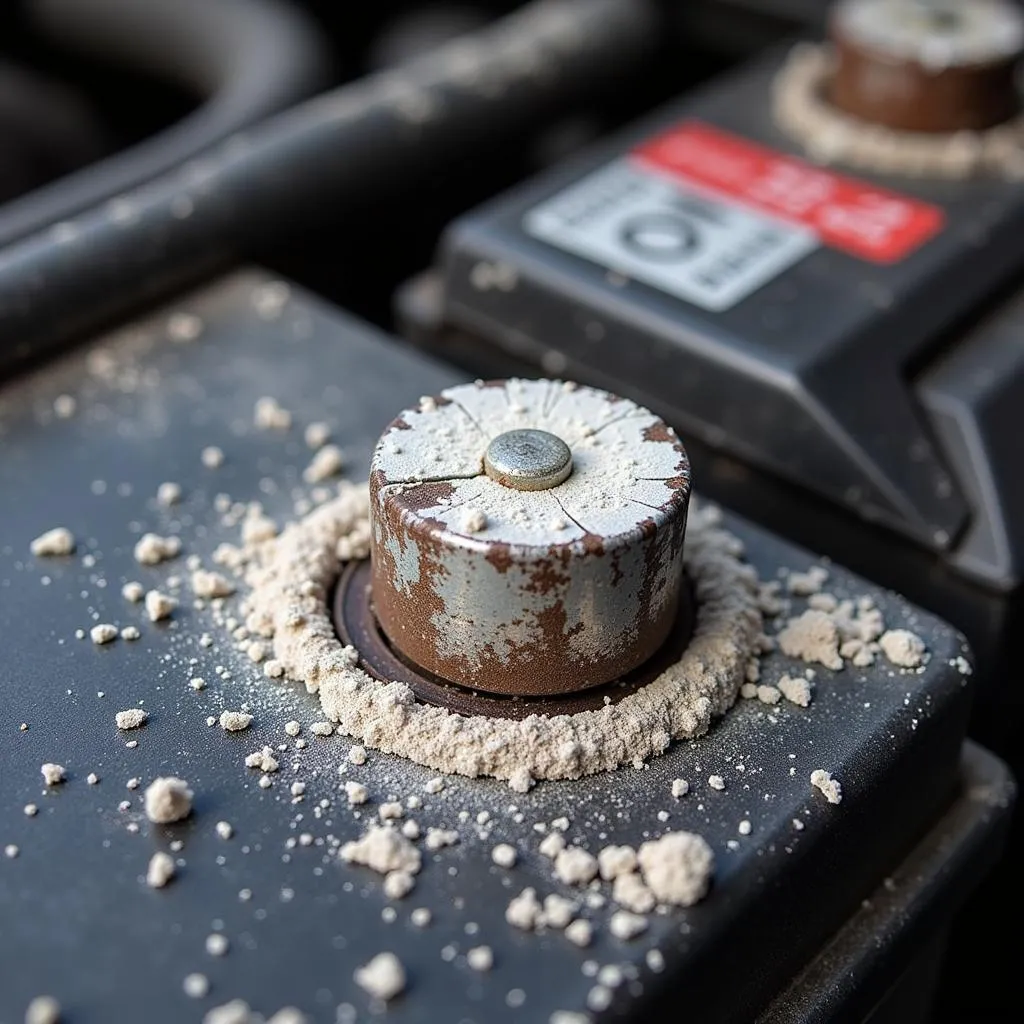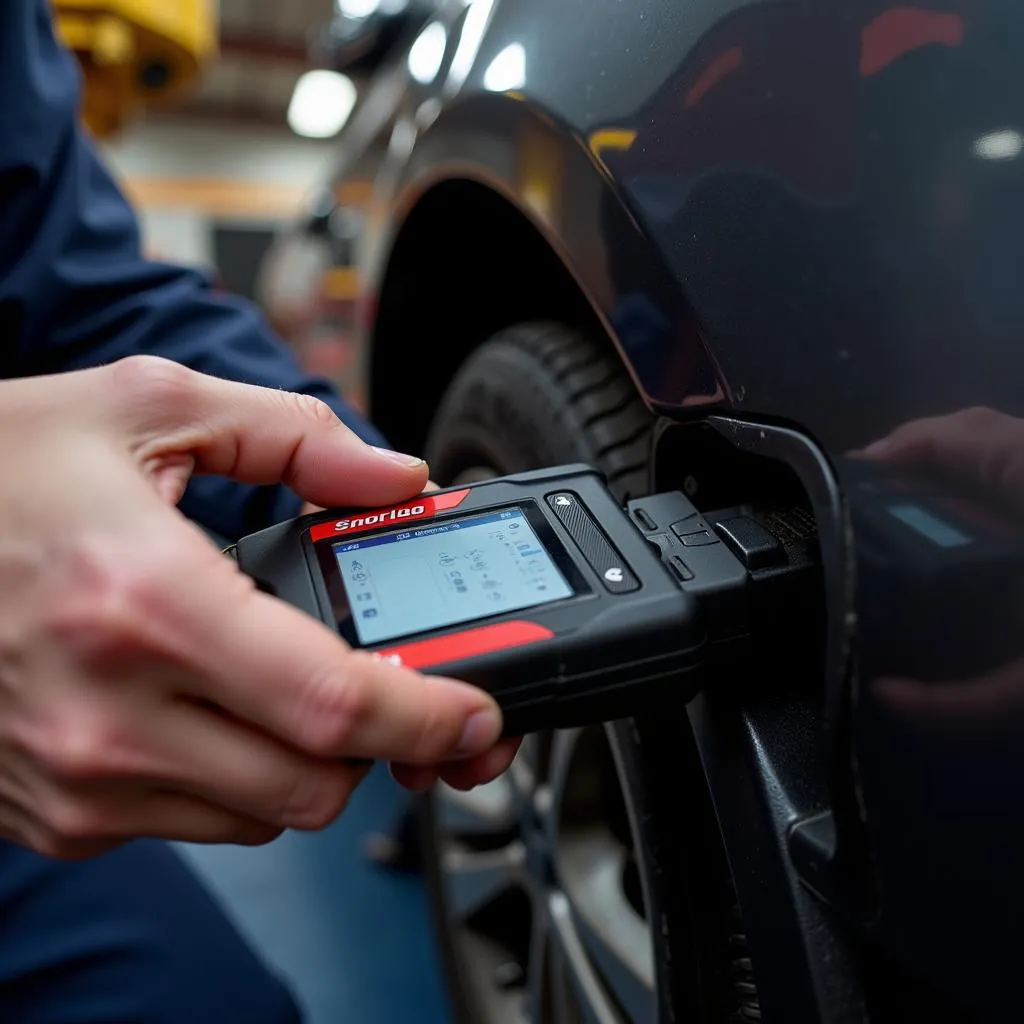Your car is making a clicking noise when you try to start it, but it refuses to turn over. This frustrating situation is a common automotive problem that can stem from various issues. This article dives into the potential reasons behind a car that ticks but won’t start, provides solutions to get you back on the road, and explains how a dealer scanner can help diagnose the problem accurately.
Hearing your car tick but not start can be concerning, often signaling an issue with the starting system. While a dying battery is often the culprit, the problem might not be so simple.
Understanding the Clicking Sound
Before we explore the reasons your car won’t start, let’s understand what that clicking sound means. When you turn your car key, you’re essentially activating the starter motor, a powerful electric motor that cranks the engine to life. This process requires a substantial electrical current, which is supplied by your car battery.
That clicking sound you hear is the starter solenoid engaging. The solenoid is a small electromagnetic switch that connects the battery to the starter motor. When the solenoid receives enough power, it closes the circuit, allowing the starter motor to draw the necessary current and crank the engine.
 Car Battery and Starter Motor Connection
Car Battery and Starter Motor Connection
Common Causes of Car Ticking But Not Starting
Here are some of the most common reasons your car might tick but not start:
1. Weak or Dead Battery: This is the most frequent culprit. If your battery doesn’t have enough charge to power the starter motor, you’ll hear the clicking sound as the solenoid tries to engage, but the engine won’t crank.
2. Faulty Starter Motor: A failing starter motor can draw a lot of current from the battery, leaving insufficient power to actually crank the engine. This often results in a single loud click when you try to start the car.
3. Bad Starter Solenoid: If the starter solenoid is faulty, it may not be able to properly engage the starter motor, even if the battery has sufficient charge. This can lead to a rapid clicking noise when turning the key.
4. Corroded Battery Terminals: Corroded or loose battery terminals can interrupt the flow of current from the battery to the starter. This can result in a clicking sound and prevent the engine from cranking.
 Corroded Car Battery Terminals
Corroded Car Battery Terminals
5. Electrical Issues: Wiring problems, a faulty ignition switch, or a blown fuse in the starting circuit can all prevent the starter motor from receiving the power it needs, leading to a clicking noise without the engine cranking.
6. Engine Problems: While less common, a seized engine or a problem with the timing belt or chain can prevent the engine from turning over, even with a healthy starting system.
Diagnosing the Problem
Pinpointing the exact cause of a car ticking but not starting often requires going beyond a visual inspection. While jump-starting the vehicle can quickly rule out a dead battery, a more thorough diagnosis might be necessary for other potential culprits. This is where a dealer scanner comes into play.
The Role of a Dealer Scanner
A dealer scanner, also known as a professional-grade OBD-II scanner, is a powerful diagnostic tool that can provide detailed insights into your car’s various systems. Unlike basic code readers, dealer scanners offer comprehensive functionality, allowing mechanics and car enthusiasts to access manufacturer-specific data and perform advanced diagnostics.
Here’s how a dealer scanner helps diagnose a car that ticks but won’t start:
-
Read and Clear Fault Codes: A dealer scanner can retrieve diagnostic trouble codes (DTCs) stored in your car’s computer, providing valuable clues about potential problems within the starting system or other related components.
-
Live Data Monitoring: These scanners can display live data from various sensors, including battery voltage, starter motor current draw, and ignition system parameters. This real-time information can help pinpoint the source of the problem.
-
Component Activation: Some dealer scanners allow for component activation, meaning you can use the scanner to engage the starter motor directly. This helps determine if the starter motor itself is faulty or if the issue lies elsewhere in the starting circuit.
 Mechanic Using Dealer Scanner on a Car
Mechanic Using Dealer Scanner on a Car
Solutions
-
Jump-Start the Battery: If a weak battery is the culprit, jump-starting your car from another vehicle or using a portable jump starter can provide a temporary solution to get you going.
-
Recharge or Replace the Battery: If jump-starting works, it’s essential to fully recharge your battery or consider replacing it if it’s nearing the end of its lifespan.
-
Replace the Starter Motor or Solenoid: A faulty starter motor or solenoid will typically require replacement. While these can sometimes be repaired, replacing them is usually the most reliable solution.
-
Clean Battery Terminals: Cleaning corroded battery terminals with a baking soda solution and a wire brush can often restore proper electrical contact.
-
Inspect and Repair Wiring: Any damaged or loose wiring in the starting circuit will need to be repaired or replaced by a qualified mechanic.
-
Address Underlying Engine Issues: If the engine is seized or there are problems with the timing components, you’ll need to address these issues before the car will start.
Conclusion
Experiencing a car that ticks but won’t start can be frustrating, but understanding the common causes and utilizing tools like dealer scanners can simplify the diagnostic process. While a dead battery is often the easiest fix, delving deeper into other possibilities ensures a comprehensive resolution. By using a dealer scanner, car owners and mechanics can accurately diagnose the root cause of the problem and implement the appropriate solution to get the vehicle up and running smoothly again.
FAQ
- Can I drive my car with a clicking starting problem?
It’s not recommended to drive your car if it’s only starting intermittently or making a clicking noise. Continuing to try and start the car with a faulty starting system could further damage other components.
- How long does a car battery last?
Car batteries typically last between 3 to 5 years, but factors like climate, driving habits, and battery quality can influence their lifespan.
- How much does it cost to replace a starter motor?
The cost to replace a starter motor can vary depending on the make and model of your vehicle, but it typically ranges from $[price range] for parts and labor.
- Can a bad alternator cause my car to tick but not start?
While a bad alternator won’t directly prevent your car from starting, it can lead to a drained battery, which will eventually result in a clicking noise and a no-start condition.
- Can I replace a starter motor myself?
Replacing a starter motor can be a moderately complex DIY job, but it requires some mechanical skills and tools. If you’re unsure, it’s best to have a qualified mechanic handle the repair.
Still Need Help?
If you’re experiencing car troubles and need expert assistance, don’t hesitate to reach out! Our dedicated team of automotive specialists at DiagXcar is ready to help. Contact us via:
- WhatsApp: +1(641)206-8880
- Email: [email protected]
- Address: 276 Reock St, City of Orange, NJ 07050, United States
We offer 24/7 customer support to get you back on the road as quickly as possible.